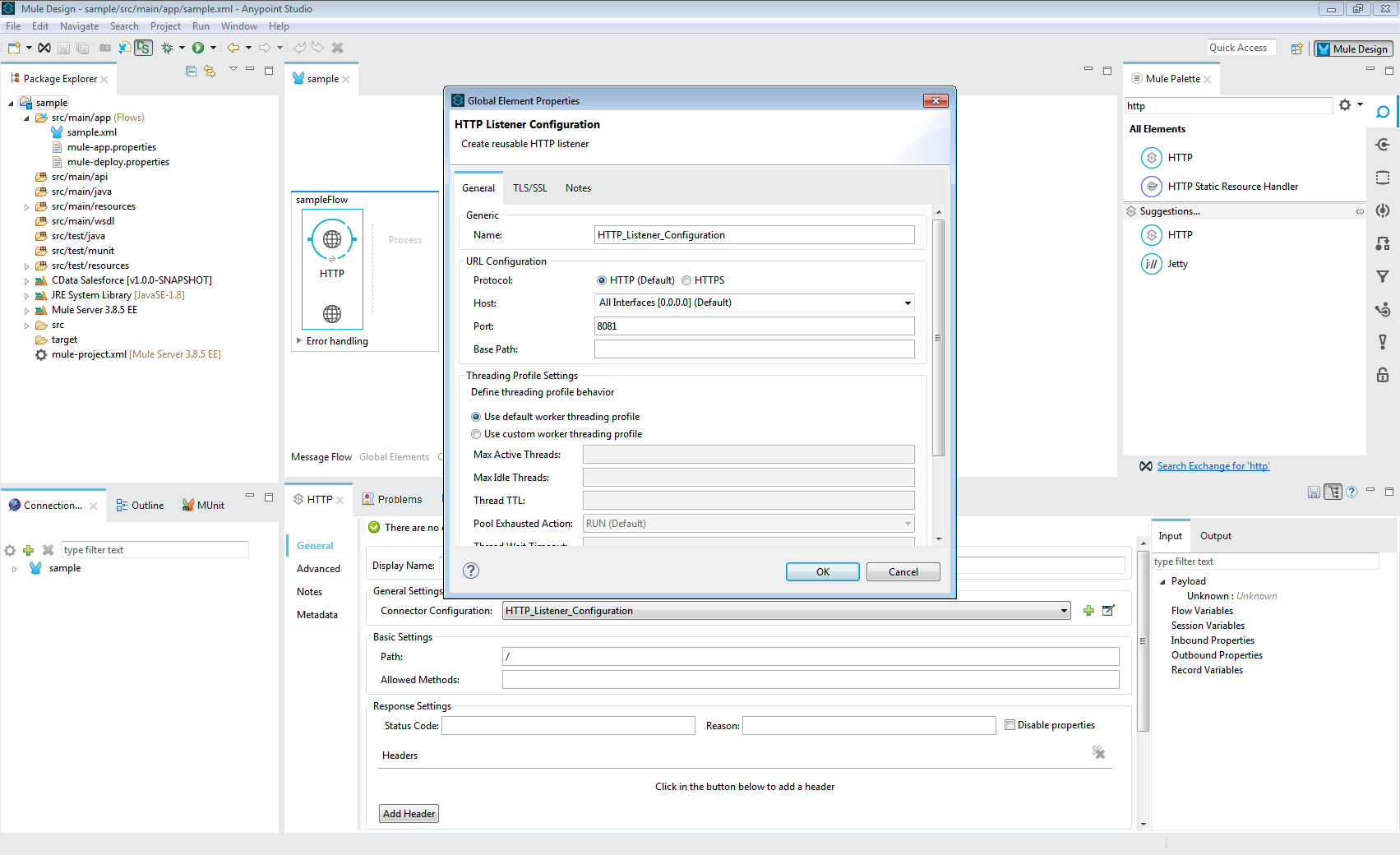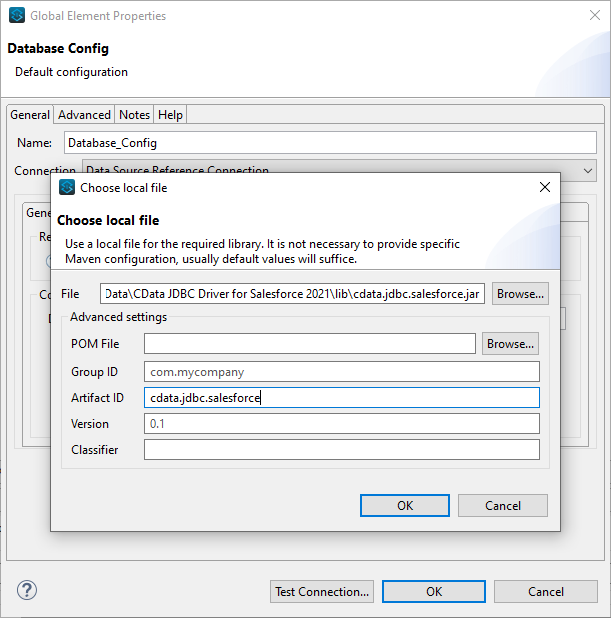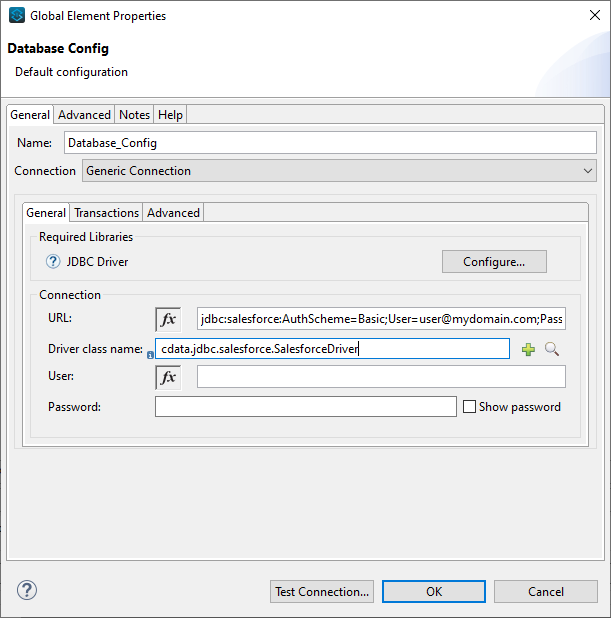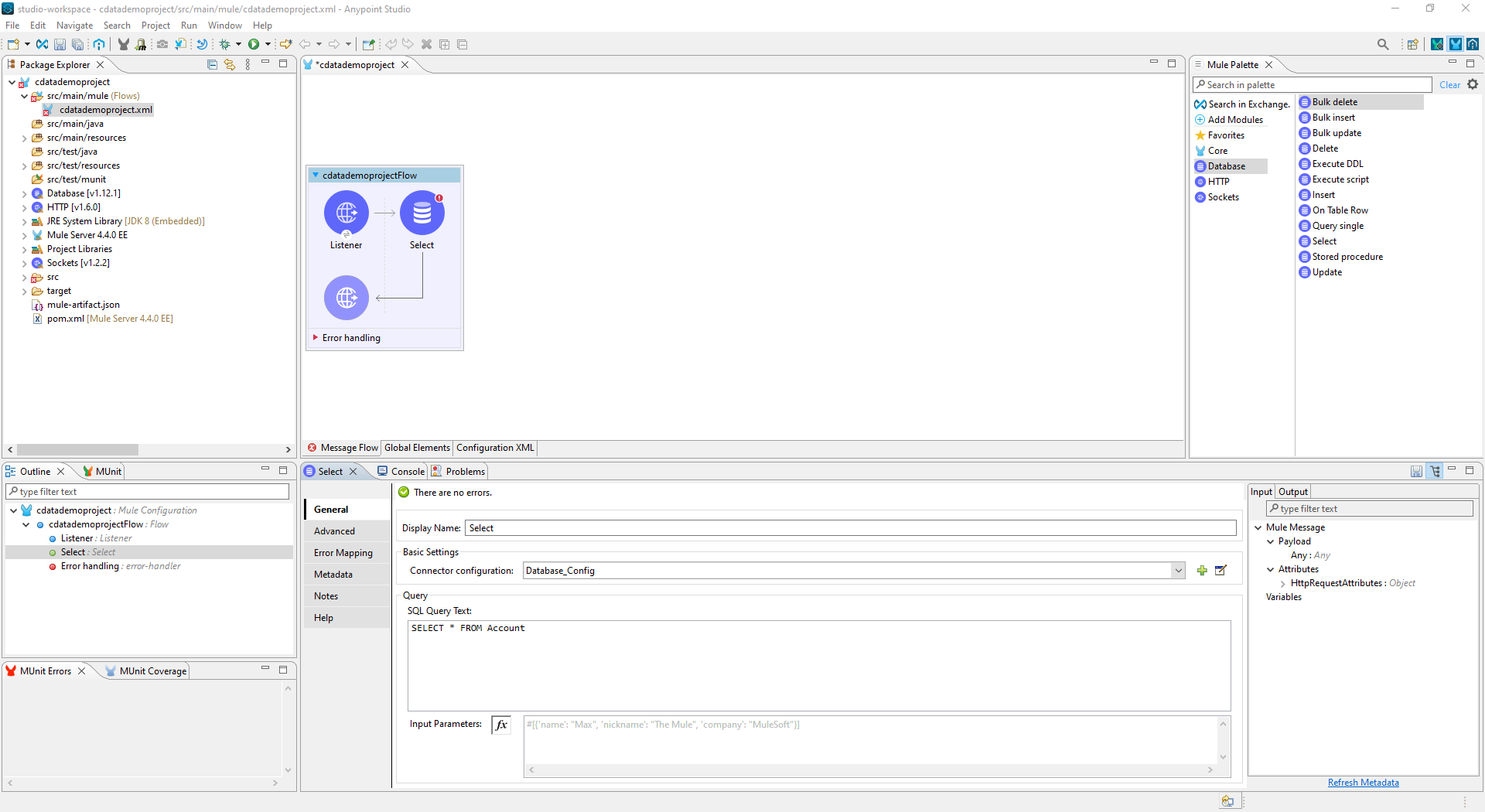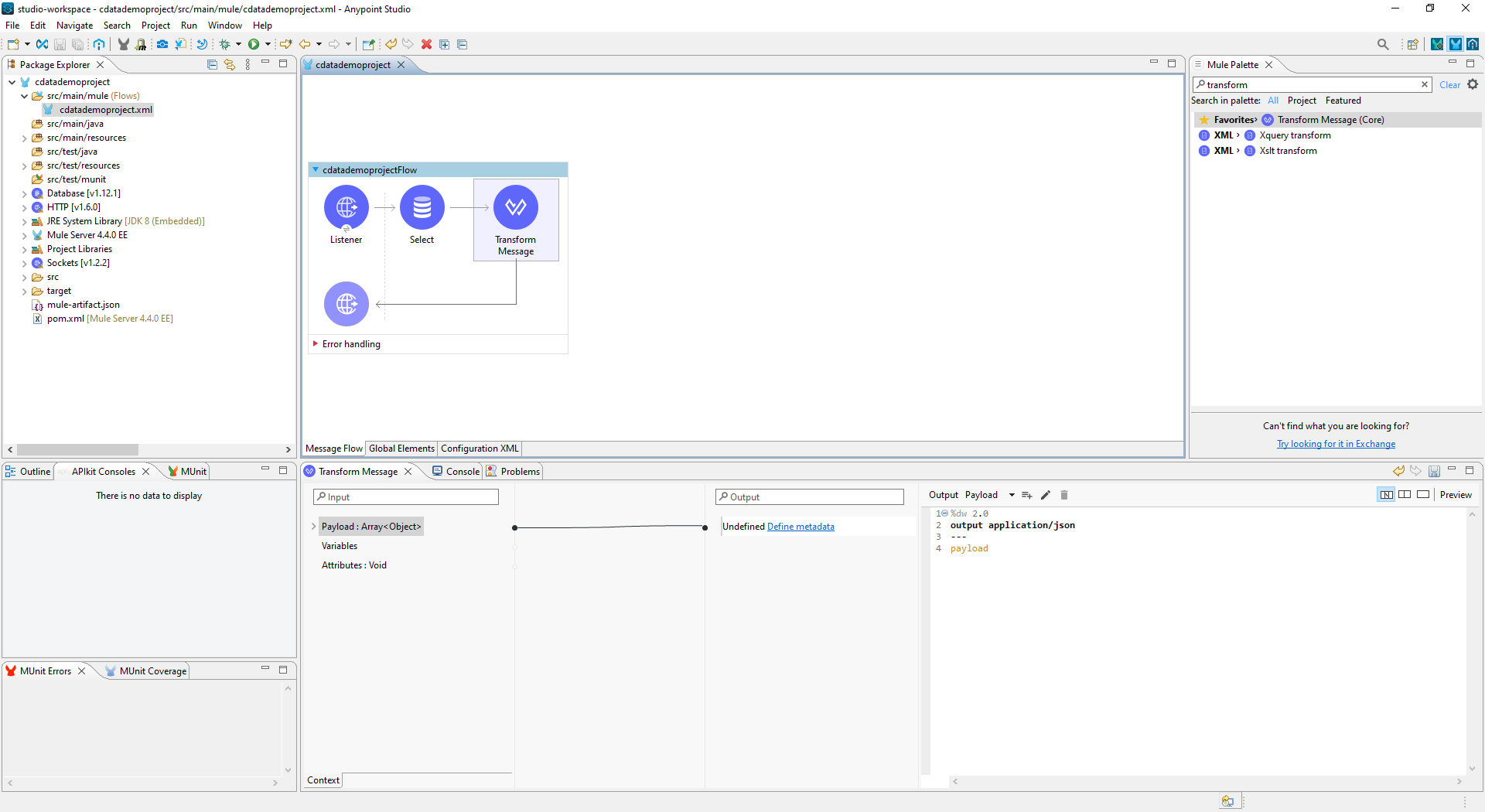Discover how a bimodal integration strategy can address the major data management challenges facing your organization today.
Get the Report →Access HCL Domino Data in Mule Applications Using the CData JDBC Driver
Create a simple Mule Application that uses HTTP and SQL with CData JDBC drivers to create a JSON endpoint for HCL Domino data.
The CData JDBC Driver for HCL Domino connects HCL Domino data to Mule applications enabling read functionality with familiar SQL queries. The JDBC Driver allows users to easily create Mule applications to backup, transform, report, and analyze HCL Domino data.
This article demonstrates how to use the CData JDBC Driver for HCL Domino inside of a Mule project to create a Web interface for HCL Domino data. The application created allows you to request HCL Domino data using an HTTP request and have the results returned as JSON. The exact same procedure outlined below can be used with any CData JDBC Driver to create a Web interface for the 200+ available data sources.
- Create a new Mule Project in Anypoint Studio.
- Add an HTTP Connector to the Message Flow.
- Configure the address for the HTTP Connector.
![Add and Configure the HTTP Connector]()
- Add a Database Select Connector to the same flow, after the HTTP Connector.
- Create a new Connection (or edit an existing one) and configure the properties.
- Set Connection to "Generic Connection"
- Select the CData JDBC Driver JAR file in the Required Libraries section (e.g. cdata.jdbc.domino.jar).
![Adding the JAR file (Salesforce is shown).]()
- Set the URL to the connection string for HCL Domino
Prerequisites
The connector requires the Proton component to be installed. Normally, Proton is distributed as part of the AppDev pack. See the HCL documentation for instructions on acquiring and installing Proton or the AppDev pack.
Once the Proton service is installed and running, you will also need to create a user account and download its Internet certificate. This certificate can be used to set the connector certificate connection properties.
Authenticating to Domino
- Server: The name or IP address of the server running Domino with the Proton service.
- Port: The port number that the Proton service is listening on.
- Database: The name of the database file, including the .nsf extension.
- SSLClientCertType: This must match the format of the certificate file. Typically this will be either PEMKEY_FILE for .pem certificates or PFXFILE for .pfx certificates.
- SSLClientCert: The path to the certificate file.
- SSLServerCert: This can be set to (*) if you trust the server. This is usually the case, but if you want to perform SSL validation, you may provide a certificate or thumbprint instead. See the documentation for SSLServerCert for details.
Additional Server Configuration
The connector supports querying Domino views if any are defined. Before views can be queried by the connector they must be registered with the design catalog.
Please refer to the Catalog Administration section of the AppDev pack documentation for details on how to do this.
Built-in Connection String Designer
For assistance in constructing the JDBC URL, use the connection string designer built into the HCL Domino JDBC Driver. Either double-click the JAR file or execute the jar file from the command-line.
java -jar cdata.jdbc.domino.jarFill in the connection properties and copy the connection string to the clipboard.
- Set the Driver class name to cdata.jdbc.domino.DominoDriver.
![A configured Database Connection (Salesforce is shown).]()
- Click Test Connection.
- Set the SQL Query Text to a SQL query to request HCL Domino data. For example:
SELECT Name, Address FROM ByName WHERE City = 'Miami'![Configure the Select object (Salesforce is Shown)]()
- Add a Transform Message Component to the flow.
- Set the Output script to the following to convert the payload to JSON:
%dw 2.0 output application/json --- payload![Add the Transform Message Component to the Flow]()
- To view your HCL Domino data, navigate to the address you configured for the HTTP Connector (localhost:8081 by default): http://localhost:8081. The HCL Domino data is available as JSON in your Web browser and any other tools capable of consuming JSON endpoints.
At this point, you have a simple Web interface for working with HCL Domino data (as JSON data) in custom apps and a wide variety of BI, reporting, and ETL tools. Download a free, 30 day trial of the JDBC Driver for HCL Domino and see the CData difference in your Mule Applications today.






